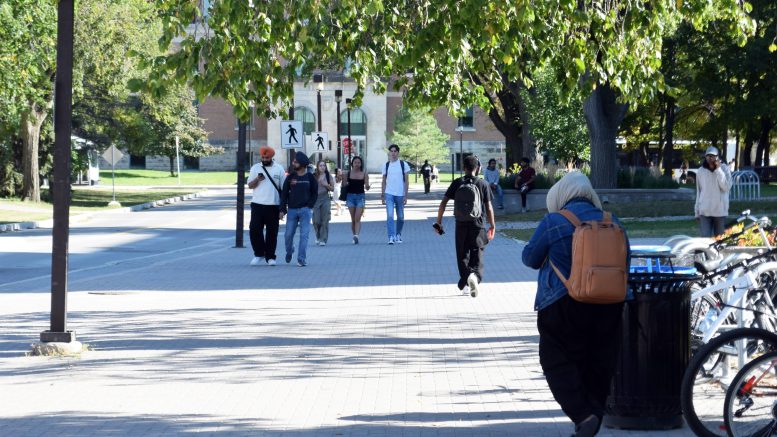The U of M anticipates to lose millions of dollars from the federal government’s intake cap on international student permit applications.
“Based on the numbers that we’ve seen, which is to see a drop […] close to 600 international students, we would expect that that will be somewhere in the nature of seven to nine million dollars,” said Michael Benarroch, U of M president and vice-chancellor.
“It’s going to be a fairly significant hit to our budget.”
A fall term enrolment report for the university indicates a 30 per cent decline in new international students compared to last year. Overall, international student enrolment has decreased by seven per cent.
“Even with positive growth in domestic enrolment, the international student drop can be expected to have a long-term impact on our institution,” said Eleanor Coopsammy, director of media relations for the university.
In January, Marc Miller, Canada’s minister of immigration, announced that the federal government would approve less study permits for international students. Approximately 360,000 study permits will be approved this year which is a 35 per cent decrease from 2023.
As part of the cap, international student permit applications will also require an attestation letter from a province or territory. Caps have been established for individual provinces and territories which are weighted by population.
This measure is being introduced to try and prevent some institutions from taking advantage of students. The restriction also intends to ease the burden on Canada’s housing market.
“It’s unacceptable that some private institutions have taken advantage of international students by operating under-resourced campuses, lacking supports for students and charging high tuition fees, all while significantly increasing their intake of international students,” stated Miller.
Miller added that “allowing bad actors to continue their operations would be a disservice to all the good institutions who pride themselves in providing a top-tier academic experience.”
Benarroch said that the cap “penalized the entire system, including those that were good actors. I strongly believe that universities and many colleges have been good actors in this.”
“I don’t believe the University of Manitoba has been a bad actor. I believe that we have acted responsibly, […] we want to make sure that when international students come here, that we can provide them the services and the supports that they need to be successful.”
“I think that the policy, the way that it was introduced and implemented, has done a lot of damage to the post-secondary system,” said Benarroch.
When asked about the possibility of a tuition hike to make up for the loss in revenue, Benarroch stated, “it really is going to depend on how we see this move forward in the future. Tuition fees are only one of the sources.”
Benarroch mentioned that discussions between the provincial and federal government could amount to additional institution support, such that an increase in tuition fees would not be necessary.
“I think we would put everything on the table at this point,” stated Benarroch.
“We’ve been committed to making university education affordable in this province. We want to continue to be in that place, but we do have bills that we have to pay and so we’re taking this step by step.”
The enrolment restriction will be in place for two years.
International students pursuing graduate level studies are not included in the cap. Study permit renewals will not be affected.
“The number of new study permit applications that will be accepted in 2025 will be reassessed at the end of this year,” said Miller.


